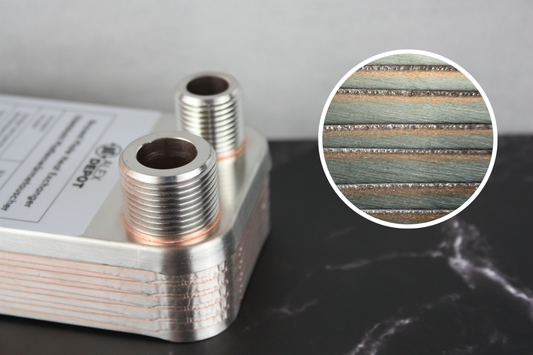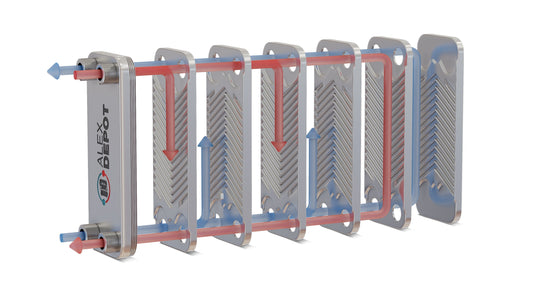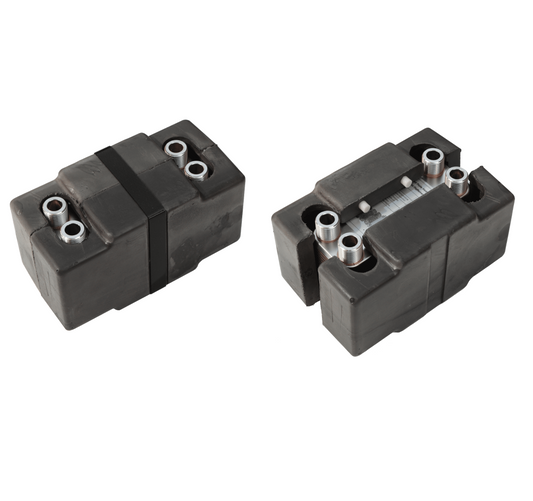Information - Plate heat exchanger

Plate Heat Exchangers in Practical Testing
Stainless steel plate heat exchangers demonstrate stable performance and energy efficiency under real-world conditions. Improvements can be achieved in various ways.
Plate Heat Exchangers in Practical Testing
Stainless steel plate heat exchangers demonstrate stable performance and energy efficiency under real-world conditions. Improvements can be achieved in various ways.

Advantages of copper soldering
Copper-brazed plate heat exchangers are highly efficient, durable, and low-maintenance. Thanks to excellent thermal conductivity, they deliver reliable performance with minimal energy and cost.
Advantages of copper soldering
Copper-brazed plate heat exchangers are highly efficient, durable, and low-maintenance. Thanks to excellent thermal conductivity, they deliver reliable performance with minimal energy and cost.

Structure & Functionality – Plate Heat Exchangers
Plate Heat Exchangers – compact, efficient, and versatile. They transfer heat between two fluids without mixing them, making them ideal for heating, cooling, and industrial applications.
Structure & Functionality – Plate Heat Exchangers
Plate Heat Exchangers – compact, efficient, and versatile. They transfer heat between two fluids without mixing them, making them ideal for heating, cooling, and industrial applications.

How insulation shells improve efficiency
PUR rigid foam insulation shells protect plate heat exchangers from heat loss, extend their lifespan, and increase energy efficiency. They are durable, precisely fitted, and easy to install.
How insulation shells improve efficiency
PUR rigid foam insulation shells protect plate heat exchangers from heat loss, extend their lifespan, and increase energy efficiency. They are durable, precisely fitted, and easy to install.
